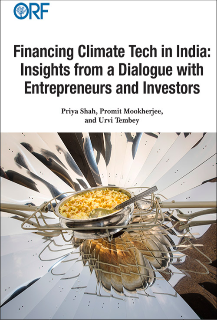Going against the grain, the very principles of free market economics are being trampled upon. The NDA government finally allowing 100 per cent FDI in e-commerce on the eve of the PM's latest overseas trip was viewed as a positive reform. But the fine print revealed the fault lines within. The BJP's core constituency — traders — had struck a big blow against an open market economy.
The BJP's origins are in the Jan Sangh which was principally a party of traders. Now we know that the aggressive deep discounting strategy of the e-tailers has wreaked havoc on the businesses of traditional retailers over the last 18 months or so. As private equity and bulge bracket storied investor money fuelled Indian e-tailing to acquire customers and ramp up gross merchandise value, retailers including grocers, neighbourhood kiranas, branded stores and even malls felt the heat. As anyone and everyone kicked off a startup boom, money lying on the sidelines was soaked up by them.
A struggling economy was astonished to see the dynamism in startupreneurs picking up large tranches of eye popping capital. As a top of the line private equity investor himself told me, startups benefited most from this new idea and idiom of e-commerce as the regulations did not impede the spirit of entrepreneurship in the sunrise sector. The adage of consumer is king maximising and optimising from the endless bargain basement carnivals. Finally, regulation came in the form and shape of new FDI rules. A debilitated India Inc unable to raise fresh capital gaped at the large dollops of capital coming into the e-commerce space. Neural regeneration is what the government should contemplate for this decision typically defies logic. By positioning it as a reform, the BJP led government is only choking the flow of free capital. Moreover, by being obstructionist, it is only impeding capital flows and consumers making their tryst with best pricing of goods.
Actually, the recent spat between bitter competitors Flipkart's Bansal and Snapdeal's Bahl provided a headsup to what was coming in this sector. When Bansal alluded to the entry of e-commerce gargantua Alibaba into India, it was clearly holding up a neon sign that the game changing regulations were impending. And so it happened. Alibaba owns 4.14% equity share capital of Jasper Infotech which in turn owns snapdeal. Snapdeal, which began as a coupon platform similar to Groupon Inc when it was founded in February 2010, is one of India's three biggest e-tailers. In February, there were reports that Alibaba was also in a dialogue to pick up stake in Flipkart as well. But that hasn't worked out yet.
BJP is also opposed to FDI in multi brand retail only because of the same traders who originally formed the very backbone of the Jan Sangh. The new rules prohibit FDI in inventory based commerce which is a big victory for swadeshi retailer Future Group's Kishore Biyani. The FDI is allowed only in e-commerce marketplaces with a caveat that they refrain from deep discounting. The jargon being used for that is -- there is no restriction on sellers offering discounts but we don't want to allow a situation where a marketplace compensates a seller for selling a discount. In the long run, such practices impact the market and consumers. Now this legalese goes against the very tenets of the online marketplace and its booming sales which gave Indian consumers the right to choose what they wanted to buy at discounted prices. Continuing with the jargon, the new FDI rules prevent the marketplace from directly or indirectly influencing the sale price. And the sting in the tail is that predatory pricing violates FEMA norms, making it a cognisable offence. Another weird requirement is that fashion e-tailers will have to display the names and addresses of the sellers prominently besides the products. Jabong and Myntra, already struggling, will find the going tougher in the days to come — over regulation once again hampering the underlying ethos of commerce.
Optics or atmospherics, traders from all over India are gathering in Delhi to oppose large vendors like WS Retail on Flipkart and Cloudtail on Amazon India where total sales on an online marketplace from a group company or vendor have been capped at 25 per cent. Brick and mortar retailers reckon this is a loophole as it allows Flipkart and Amazon to create more than one Cloudtail and WS retail.
In a like to like comparison with malls and other branded stores which offer Diwali 'Dhamakas' or end of season sales, online marketplaces 'may be allowed' to do this every once in a while. But there is no clarity on how many times in a year this would be allowed if at all. And the spectre of Competition Commission using abuse of dominance rules to strike down influencing pricing by sellers also remains open. The online boom and the way Indian consumers took to the concept as a rush of capital flowed in is now being held to ransom by government policy. Like in everything else, it is three steps backwards and one step forward as flawed reform is going against the very edifice of free market economics. A river of capital is being garrotted. You might as well write hieroglyphics for regulation and policy.
The author is a senior journalist and commentator based in New Delhi.
The views expressed above belong to the author(s). ORF research and analyses now available on Telegram! Click here to access our curated content — blogs, longforms and interviews.

 PREV
PREV

